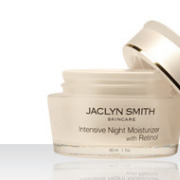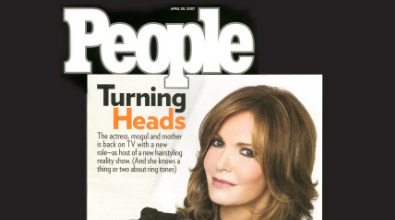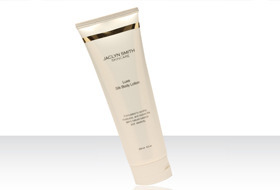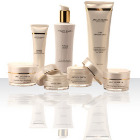Patrick Foley
Patrick is available for consultation and appointments at Barney’s New York in Beverly Hills, 310-276-4400, Ext. 5576, or request transfer to the resident artist.
Interview by Dr. Brad Allen
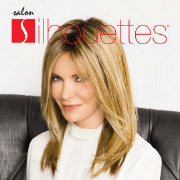
Patrick Foley, the Resident Cosmetics Artist at Barneys New York in Beverly Hills, has become one of the make-up and skin-care industry’s most sought after consultants. During his career, Mr. Foley has combined his natural artistic talents with expert knowledge of professional skin-care and cosmetic lines to select the perfect products for his clients. He was recently featured in the New York Times Sunday Magazine as “a guru” for Skincare and Cosmetics.
Mr. Foley, named ‘Best Make-up Artist in L.A.’ on three separate occasions by Allure Magazine has been a make-up artist and consultant on international beauty campaigns for industry giants such as Christian Dior, Chanel, and Trish McEvoy. His expertise has been featured on the covers of InStyle, European Elle, Self Magazine, Good Housekeeping, and TV Guide. Patrick has had some of the world’s most recognized celebrities as his regular clientéle, providing skin-care and make-up services that can be seen walking on the red carpets of virtually every major awards event in the movie industry. His forte for cosmetic artistry is also prominently displayed on a number of international runways, working with fashion designers such as Michael Kors, Tommy Hilfiger, and Donna Karan.
BA: Patrick, many women’s number one skin-care complaint is wrinkles and fine lines. What do you recommend for this common problem?
PF: Any cream that has Retinol is probably going to be the most effective in repairing wrinkles, as retinoids are the most proven ingredient for helping reverse the signs of aging. I also think that using a light variable foundation that evens out the skin tone helps make them less noticeable. Once the skin is one even tone, wrinkles and imperfections are less noticeable, as you are drawn to the eye. In contrast, when there is a discoloration in the complexion, you are drawn to the imperfection. So getting a foundation to provide variable coverage, that can be light around the eyes with one coat (to prevent caking), but heavier where you need it such as around the cheek or nose to smooth out the skin is crucial.
You always want to apply foundation with downward strokes. This makes the skin look smoother and helps the pores look invisible. I always apply an eye cream before makeup, as a concealer will look much better with eye cream underneath. In addition, many eye creams today contain peptides to rebuild collagen and humectants like hyaluronic acid which retain water and plump the skin; this can further reduce the appearance of fine lines and wrinkles.
BA: Another common complaint is morning puffy eyes; any tricks to deal with this common problem?
PF: Morning puffy eyes can be due to many factors such as lack of sleep, dehydration, allergies, wearing makeup to bed, and gravity, as fluid around the eyes does not drain as well. There are also some serious conditions such as infections, but those need to be referred to a doctor. In general, puffy morning eyes improve as your stand up and rehydrate. To avoid or minimize this problem you should always wash your face and take off your makeup at night before going to bed, especially around your eyes. Dehydration which can follow drinking alcohol needs to be corrected by plenty of water. Get ample sleep, and if possible, sleep slightly inclined on your back to help gravity drain the fluid around the eye, which has a thinner skin, and is more sensitive. Lastly, for an almost instant improvement you can apply cold cucumbers or damp cool tea bags to both eyes for 5-10 minutes.
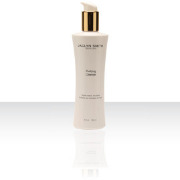
BA: What is the most common mistake you see women make with regards to skin care?
PF: I think the most common mistake is using a harsh drying bar soap to take off makeup and clean the skin. Invest in a gentle milk or emulsion cleanser instead. It will leave your skin refreshed without the dry irritating feel of bar soap, which is really meant for the body in a shower.
Another mistake is not using an effective sunscreen every day. Every one of my celebrity clients uses a sunscreen. You also have to apply enough of the product for it to be effective. Too many people don’t use enough. Maybe they are worried about break-outs, but in general, good products and creams work with your skin, and you need to use enough to get the benefits. Be generous; most products are not meant to last more than a few months. Applying an adequate amount of product is especially important with sunscreens. If you only use a small amount to cover your whole face, you are significantly reducing the sun blocking protection.
BA: I know you must have some skin care secrets, could you share a few?
PF: It may not be a secret, but I believe good skin care is like exercise, to be effective you have a good routine, and you must practice it every day. Most people who start a new routine will be good in the beginning, but then not keep it up, and be surprised when their skin does not improve. Being consistent is the number one trick in maintaining your skin. This may be why Jaclyn has been so successful with her skin; she uses a simple program that is complete, and she follows it religiously every day. Jaclyn’s routine is very basic, so you are not going to skip it on nights when you’re tired, which is often what happens with routines that are complex or time consuming.
BA: So do you think this is Jaclyn’s secret to such great looking skin for so many years?
PF: Yes, in a way, I believe that is a big part of her secret. Of course Jaclyn was born with great genes and beauty. However, she has worked to maintain and preserve her beauty by sticking to a proven routine, and using first class high quality products. She has been consistent, and stuck with what worked. Jaclyn has changed with the times when something was proven. However, she has never ever gone with the trends just for the sake of change. She has stayed true to herself and her beliefs. For example, if you look at her magazine covers from years ago like Vogue, it could just as easily be today. The look is classic.

BA: Skincare companies are always introducing new products. What do you look for when you get a new product to examine?
PF: I look at the ingredients, as many products don’t contain clinically proven elements. I want to know this product is going to work. I also think texture is huge. You have to like the way something feels, or you won’t use it. When you like the texture, you’re never going to miss applying it before going to bed or doing your make up. You can’t wait to put it on because it feels so good.
BA: Is there any one ingredient in skincare that you would not go without?
PF: I think having a night cream with some sort of retinoid or retinol is a must. However, not all forms of retinol are created equal. Use a cream that contains pure retinol instead of a derivative like retinyl palmitate, as in general, this is not as effective. It is important to remember that nightly use of retinol may initially cause skin irritation (redness), especially in women with sensitive skin. Therefore, some women may need to gradually build up to regular nightly use, and should begin by using smaller quantities, or alternating night creams (with one and one without retinol) to avoid irritating effects.
I also think a good sunscreen is
essential. It doesn’t matter what products you use, your skin is going
to age faster if you don’t protect it from sun damage. A good sunscreen
lets you preserve the skin you have, while Retinol helps repair the
signs of aging better than just about any other ingredient.
BA: What about exfoliation, do you think it should be part of a routine, and how often should it be done?
PF: I think exfoliation should be done at least once a week, and probably more frequently if you have oily skin. In fact, since many people have combination skin (some parts dry, some oily), they may want to exfoliate once a week in dry areas, but 2-3 times per week in those problem oily areas, like around the nose. It can either be done as a mask, or with a gentle scrub. It will refresh your face and brighten your skin. Doing it once a month is just not enough to give the same benefits. Very often if the products and creams you are using are not working as well, you need to exfoliate and remove the top layer of dead skin so the active ingredients can penetrate and work more effectively.

BA: Should skincare be age specific?
PF: In a word, no, your skin-care should be based more on your skin type, not your age. Although in general your skin becomes drier as you age, you can still have oily skin in your 60’s, and dry skin in your 20’s. If you have oily skin you may need to exfoliate more often, at least in those oily areas, and apply less heavy products. If you have dry skin, then you may need to exfoliate less, and keep the area well moisturized.
Another thing I notice is how unaware people really are about their skin type. In particular it amazes me how many people think they have oily skin, when they don’t. It will be hot outside so their skin is shiny, and they will come in and tell me they have oily skin, when really they are just dehydrated. Or they had oily skin 20 years ago, and their skin has changed, but they still think they have oily skin. Sort of like when someone was overweight, and they lose it, but they still see themselves as fat. Maybe they have some oily skin in their “T” zone, but the rest of their face is dry, and yet they think their whole face is oily.
BA: We have talked a lot about skincare. What do you think makes Jaclyn’s skincare line special?
PF: I think it’s the ingredients in combination with a simple routine that is easy to follow and works. Jaclyn spent a tremendous amount of time making sure all her products contained ingredients that have proven benefits, and that they had a texture she loved. She didn’t go with the new fancy plant or fruit; she stuck with things that have been shown to work scientifically, and made sure her products contained adequate amounts to be effective. For example, her sunscreen provides broad and complete UVB and UVA protection as well as antioxidants. So many sunscreens today cover only a portion of the sun’s damaging rays, and yet they lead you to believe you are fully protected. Her night cream contains Retinol, which is probably the most effective over the counter anti-aging ingredient, as well as polypeptides to help stimulate collagen production while you sleep.
BA: One last question, you’ve worked with many Celebrities getting them ready for an evening event. How should women change their makeup to go from day into night?
PF: I think most women are not going to a red carpet event with bright lights, but to dinner with dim lighting, and so you want to play up a certain feature, most likely the eyes. I like eye liners. You might take the same eye pencil you normally use, but in a darker color, and heavily lining the top and the bottom will instantly give you a smoky nighttime look; which in general looks great. You can also take the pencil and smudging it into the eye crease will give it the look of a darker shadow, if you don’t have the time to put on new shadow. But in general, I think playing up the eyes is certainly a key to creating a great night look.
Interview by Dr. Brad Allen
|


